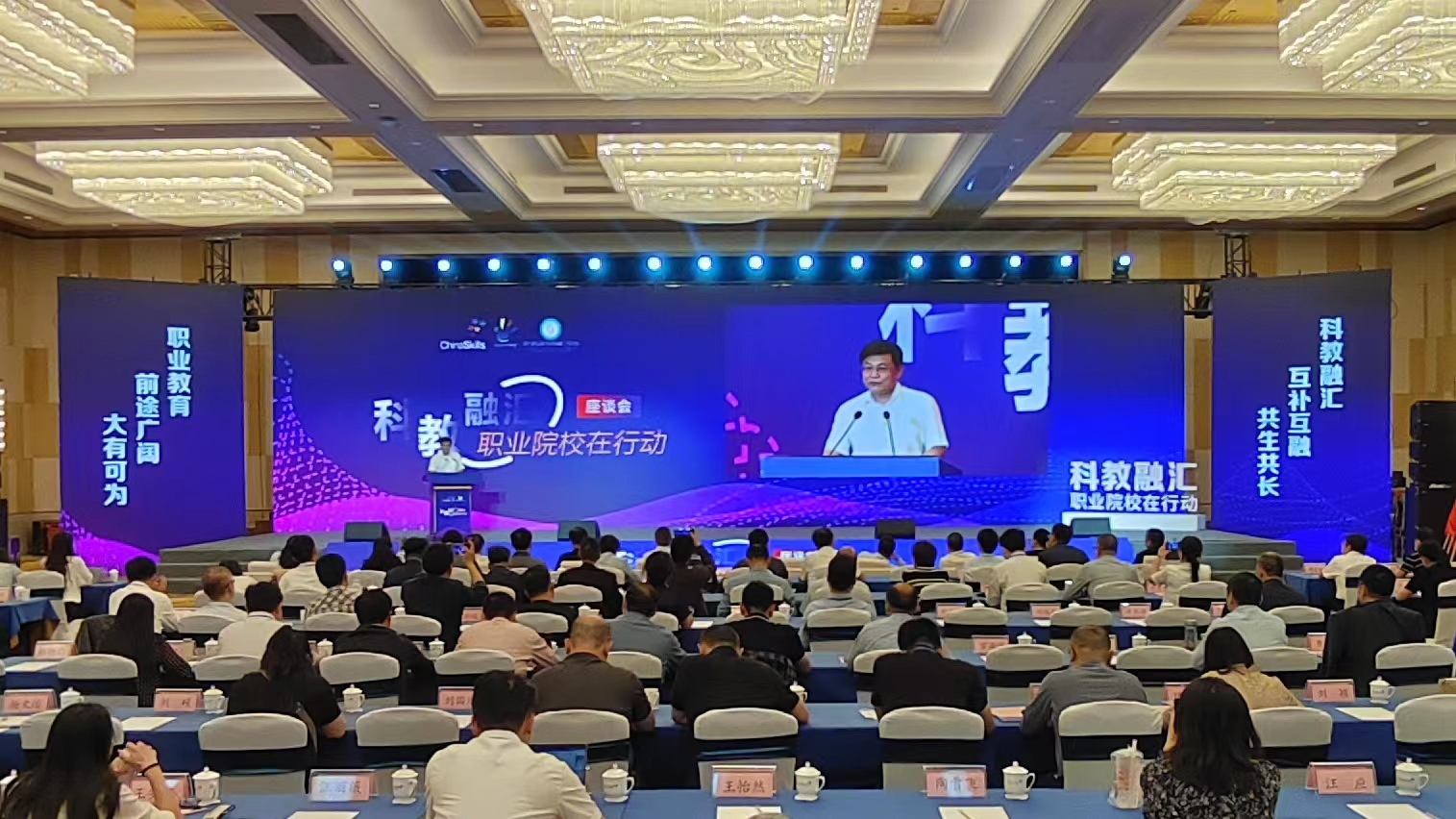promoting integration of sci-tech, vocational education

a symposium on promoting the integration of sci-tech and vocational education is held in weifang, shandong province in mid-may. (photo: s&t daily)
by chen chunyou
since the integration of education and sci-tech is essential for high-quality development, a good ecosystem has been established to advance this integration among vocational colleges by related departments and organizations, with the purpose of creating platforms for them to communicate.
in mid-may this year, a symposium focusing on promoting the integration of sci-tech and education by vocational colleges, was held in weifang, shandong province. delegates shared their insights on this topic.
lin yu, deputy director general of the department of vocational and adult education from the ministry of education, said integrating sci-tech and education needs the overall deployment of education, science and technology, and human resources from departments at both the national and local levels.
meanwhile, xu zhilong, editor-in-chief of science and technology daily, called for efforts to be made to create an ecosystem for sci-tech innovation, which will meet the current challenges in attracting and nurturing innovative personnel.
in order to enhance the interaction of vocational colleges with related industries and sci-tech resources, lin suggested that high-quality innovation platforms and collaborative innovation centers could be built in industrial parks, enterprises and colleges.
in addition, vocational colleges should establish an open regional practice center based on local advantages, with the aim being to tackle technological challenges and improve technical processes and products, he said.
a modern vocational education community for the integration of sci-tech and education was launched at the symposium, which was composed of 110 vocational colleges and enterprises. it called for establishing an efficient-research-results-oriented transformation mechanism, where enterprises will actively expedite the industrialized application of new technologies.
some colleges have benefited from this mode and got win-win outcomes. for instance, a research team, led by guo yong, an expert in applied chemical technology from tianjin vocational college, developed water filtration technology that relied on the organic materials extracted from tobacco stalks.
this technology was embraced by tianjin aozhan chemical technology co., ltd. and tianjin huaqing huanyu environmental protection technology co., ltd., generating an economic benefit of 150 million rmb.
another success story is from weinan vocational & technical college in shaanxi province. based on its animal husbandry and veterinary professional advantages, the college established a practice teaching base with a local enterprise, with the aim of reinforcing the industrial chain and cultivating specialists in breeding, forage nutrition, disease control and goat milk products development. currently, the goat dairy industry has become a backbone industry in the province's fuping county.
at the symposium, over 200 technological innovation and talent needs were put forward to higher vocational colleges. this will further expand matching opportunities for colleges and enterprises, and maximize mutual advantages.
